Greek Theatre

Who does not like the theater? Probably there are no such people. Theatre Arts is the oldest of all the arts. “Life is a theater and we are the actors,” said William Shakespeare and he was right. Theater – a small copy of the fascinating reflection of life on the stage with scenes, scenery, actors, masks, special effects, prompter dresses and many more than. For centuries, theater has repeatedly changed its form and has come a long way of evolution, until it became as we know it today. The prototype of the modern theater is a classical Greek theater, the way it was in the time of Socrates. I suggest you turn on the time machine and immerse yourself in thoughts of the Heroic Age of ancient Greece, right in the heart of the cultural life of the Greeks – the theater.
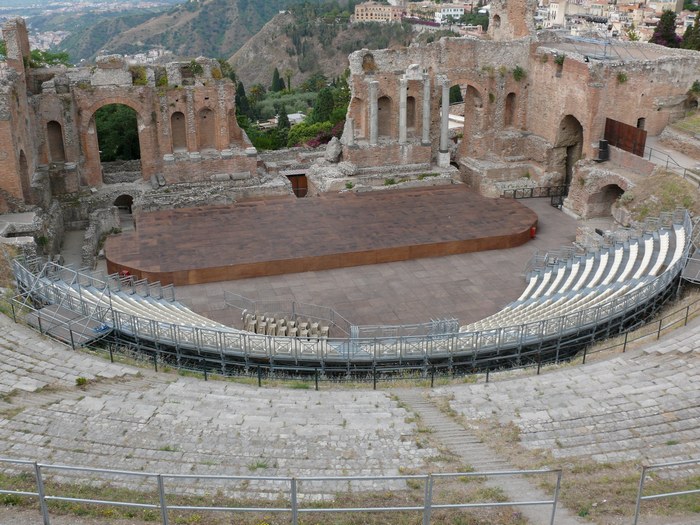
Oddly enough, but the Greek theater begins not with brilliant performances in the semi-circular amphitheater built, but with the sacred dances in the least sacred glades, a charming magic music instruments.
According to the well-known Greek myth about the birth of the god Zeus, that he had to hide in a small age from his father Kron (devouring time), which of all the dishes most liked to eat his babies. But little Zeus managed to escape, finding refuge on the island of Crete. So, when the little Zeus was crying all the local nymphs and other inhabitants of the island started to dance cheerful, joyful dance, accompanying him as much as possible with loud sounds of different instruments in order to drown out the crying baby This dance is for Cretans was a special kind of theater and the beginning of the theater.
The first organized Greek theatrical performances took the form of religious mysteries, and the first actors were priests who have served gods. “Mystery” from Greek translated as “sacrament”, a “secret rite”, “participation in the Divine.”
Nice famous Delphic oracle, a priest of the god Apollo could predict the future, but in order to answer the question, he had to create a special atmosphere with a whole bunch of theatrical and decorative elements, and the answer to the question itself was a small theatrical performances. It’s clear that someone did not come to the oracle (not allowed to easy) and not ask stupid questions. Anyway, the mystery of theater have long time been closed to the general public, and to take part in them could only dedicated priests. And to be initiated into the mysteries in ancient Greece was very, very honorable, but all dedicated to giving a solemn oath not to reveal what is happening at the time of the mysteries, and in general – to keep their mouth shut.
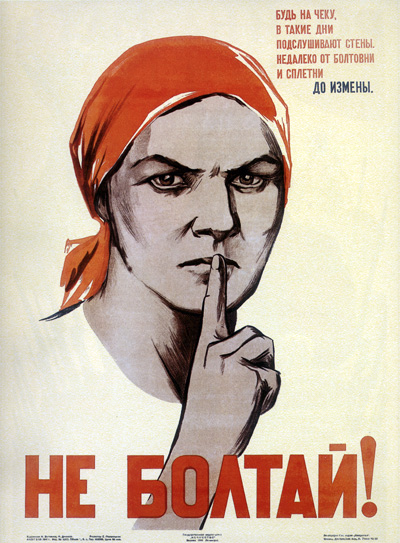
But apparently, with time theatrical mystery began to get more and more widespread, in the mystery began to devote not only priests, but also a respected (or rich), the Greeks, and then all of a row . While mystery were not turned into a mass festivities.
Theatre was a lot of mysteries, most sacred, and regarded as sacred “Eleusinian Mysteries,” but the most popular and respected by the common people used the so-called vakhanalii – theatrical mystery in honor of drunken god of wine Dionysus (or Bacchus). Are these mystery that people are just going, having fun, dancing and of course drank large quantities of wine. (For example, when we are with someone we go for a beer – it can be called a small Dionysian mystery) During all this action played out a variety of theatrical performances with the participation of the god Dionysus and other gods and heroes of Greek mythology. So, religious and Dionysian mysteries born secular Greek theater, theater performances and theme further and further removed from the religious order.
Over time, the Greeks began to build for the theater of action, special buildings – theaters, and one of the first and most famous theaters in the heart of Athens, Greece, was the theater of Dionysus.
So he looked before.
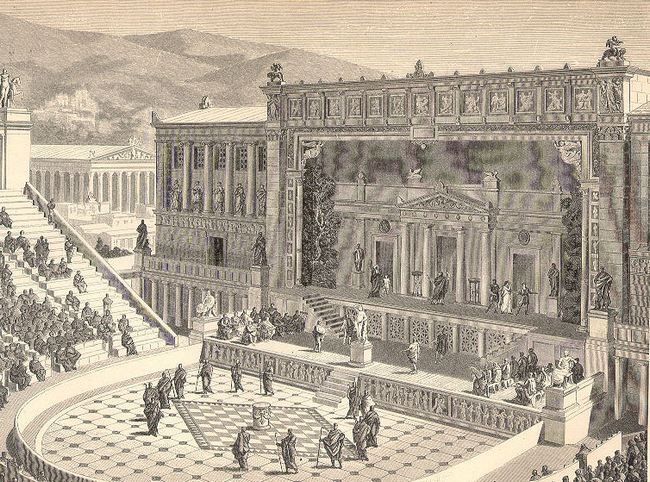
And it looks like now.
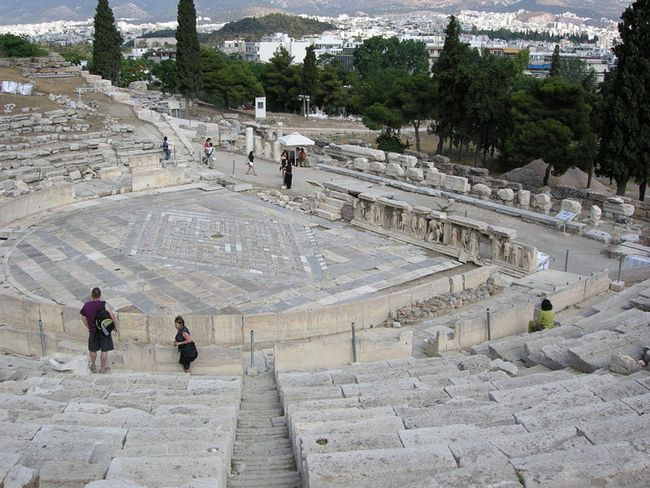
Theaters are so much loved by the Greeks that began to emerge and be built in Greece.
Because in those days there was no such creature comforts as a microphone and speakers, the theaters were built with the expectation of a very good acoustics. (And the actors had good strength in their voice) Actors, too, was a little, as a rule, in the performances attended by a maximum of three actors, each of whom served several roles. All the actors were male, female roles were performed by men too. (It was not the Greeks feminism) With the advent of secular theater emerged and playwrights who began to write a special theater. The most famous of them was Aeschylus (also known as the father of tragedy), Sophocles and Evrpid.
It is often practiced in the ancient Greek theater of competition between the actors, poets, playwrights, and on the subject of who is with him the most-most. And on the most important theater festival in ancient Greece – the largest Dionysia (another name Dionysian Mysteries) passed competitions thespians (authors tragedies) and comedians (comedy writer).
About theatrical genres, they were only three: tragedy, comedy and drama. Genre tragedy was the first and closest to the actual origins of religious theater. The tragedy in ancient Greece called singing satyrs – the mythical goat-legged creatures, the ministers drunken god Dionysus. Satire also liked a drink, as well as the practice shows that many drank something alcoholic, pulls strongly sing. Apparently singing comrades satyrs was a tragedy (although the ancient Greeks were lucky that they did not hear the singing of the modern Russian pop singers, that’s where the real tragedy)
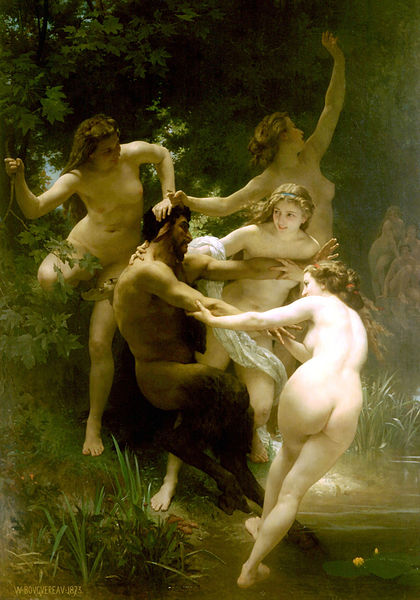
Painting by William Bouguereau “Satyr and Nymph”.
Seriously, Greek tragedy – always solemn representations to the Greek myths, where people are often opposed to the gods, but the forces inherently unequal. At the end of the tragedy is usually the sad ending of human characters (and the fact it is a tragedy) who in their blindness, decided that they could resist the will of the gods. The most popular Greek tragedy was the story of Prometheus, who brought fire to people the secret for which he was severely punished by Zeus.
Genre Drama somewhat easier tragedy. Men and Gods in the drama are not opposed to each other, and are complemented harmoniously. Although the drama is a tragedy, too, is always a serious theatrical performance, the finale she was not always bad, and human characters are the courageous creators of their own destiny.
Finally, the comedy – the easiest genre of the ancient Greek theater, shows life as funny and fun game where humans and gods laughing and joking with each other.
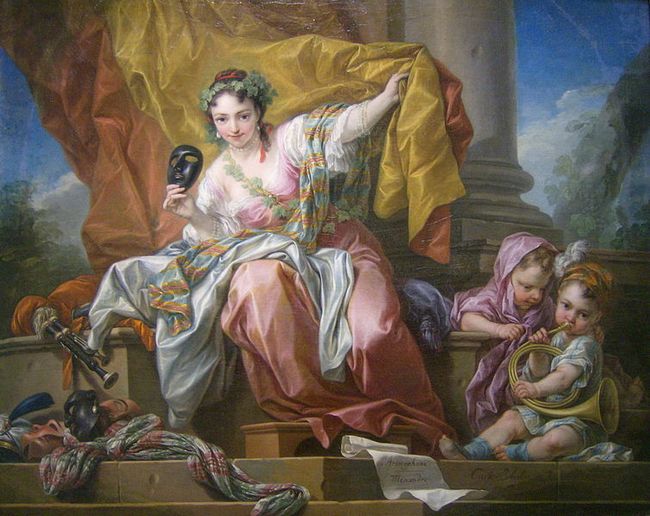
“Allegory of Comedy” Carl Vaneau.
Subsequently, of the main genres of the Greek theater were born all the others, tragedy and comedy are intertwined in a tragicomedy (my favorite genre, because our life – continuous tragicomedy laughter through tears), drama transformed into a melodrama, and much more emerged over time.